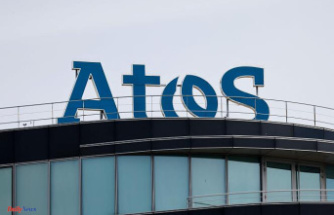The electricity price brake also brings good things for the green electricity industry: new systems are to be promoted more in the future. However, there is not only praise. Above all, energy producers criticize the federal government's plan to skim off random profits.
After the traffic light factions agreed on the electricity price brake, the green electricity industry praised the associated higher funding for new systems. The Federal Association of Renewable Energies (BEE) explained that the parliamentary groups had pulled some fangs out of the federal government's original draft law. Nevertheless, the law remains complex and a stumbling block for the willingness to invest, says BEE President Simone Peter, especially with a view to skimming off particularly high revenues at the moment. "The extensive proceeds skimming hits the industry at a difficult time with increased costs due to inflation and a tense global economic situation."
Particularly positive: The Federal Network Agency has the opportunity to raise the maximum bid values for tenders for new systems by up to 25 percent. "This is an important measure to compensate for massive cost increases," says Peter. The construction of wind farms and solar systems is promoted by guaranteeing the operators a fixed purchase price for their electricity for 20 years. In the case of wind turbines and open-space solar systems, it is determined via a tender by the network agency. The person who demands the least support receives the contract and the aid. However, a maximum price for the electricity purchase is set beforehand, which can now be increased by up to 25 percent.
The German Wind Energy Association (BWE) was satisfied with this point: "This means that clarity can now be established. There is enormous uncertainty in the industry," said BWE President Hermann Albers. Federal Minister of Economics Robert Habeck initially wanted to increase the subsidy by 20 percent, but after resistance from the FDP, this was completely canceled and left to the parliamentary groups. They had agreed on this with further changes to the electricity and gas price brake.
The entire project should soon be decided in the Bundestag and then pass the Bundesrat. The solar industry called for the possible 25 percent increase to be implemented quickly. She pointed out that recently fewer projects took part in the tenders than should be funded. The managing director of the German Solar Industry Association (BSW), Carsten Körnig, says: "We appeal to the Federal Network Agency to fully use this greater scope for authorization before the next solar park tender." Just like the BEE, he criticizes the skimming off of the currently high proceeds from electricity sales, as they are now planned.
The associated market interventions in the operation of renewable energy power plants are disproportionate. They would partly deprive the further market-driven expansion of renewable energies (RE) of investment security and liquidity. It is intended that 90 percent of proceeds above a limit value, which will be determined depending on the type of energy, will be skimmed off.
For biogas plants, the limit was increased again, which the industry praised. In return, nuclear power plant operators have to pay more than initially planned. In addition, with an ordinance, hard coal operators who were initially excluded can now also be included in the levy. The revenue is intended to help finance the relief for companies and households in electricity and gas prices.












